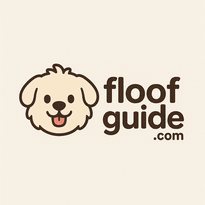Dairylea & Dogs: Cheese Please, or Cheese Freeze?
So, your dog's been giving you those puppy-dog eyes while you're enjoying a Dairylea triangle. Can you share? The short answer is: it's complicated. While Dairylea isn't toxic to dogs, it's not the best snack choice and should only be given sparingly, if at all.
Why Dairylea Might Not Be the Best Choice for Your Dog
Lactose Intolerance
Many dogs are lactose intolerant to some degree. Dairylea, like most cheeses, contains lactose. Feeding Dairylea to a lactose-intolerant dog can lead to:
- Diarrhea
- Vomiting
- Gas
- Bloating
- General discomfort
High Fat Content
Dairylea is relatively high in fat. Regular consumption can contribute to weight gain and potentially lead to pancreatitis, a serious and painful condition. Pancreatitis symptoms can include:
- Loss of appetite
- Abdominal pain
- Vomiting
- Lethargy
Additives & Processing
Dairylea is a highly processed cheese product. It contains additives and preservatives that aren't necessarily beneficial for your dog's health. Excess amounts of these are not ideal.
Safer Cheese Alternatives for Dogs
If you want to treat your dog to some cheese, opt for varieties that are lower in lactose and fat. Here are some better options:
- Cottage Cheese: Low in lactose and fat, cottage cheese is often recommended by vets in small quantities.
- Mozzarella: Also lower in lactose than many other cheeses.
- Hard Cheeses (Cheddar, Parmesan): While higher in fat, they are lower in lactose because of the aging process. Offer very small amounts.
Important: Even with these alternatives, moderation is key! Cheese should only be an occasional treat, not a regular part of your dog's diet.
Serving Cheese Safely
If you decide to give your dog a small amount of cheese:
- Start Small: Introduce it gradually to see how your dog reacts. A pea-sized amount is a good starting point.
- Observe Your Dog: Watch for any signs of digestive upset.
- Consider it a Treat: Account for the extra calories in your dog's daily intake.
- Choose Low-Sodium Options: Some cheeses are very high in sodium, which isn't good for dogs.
What to Do If Your Dog Ate a Lot of Dairylea
If your dog has eaten a significant amount of Dairylea, monitor them closely for any signs of illness. Contact your veterinarian if you notice:
- Persistent vomiting or diarrhea
- Severe abdominal pain
- Lethargy
- Loss of appetite
The Bottom Line
While a tiny bit of Dairylea probably won't harm your dog, it's not the healthiest treat. There are better cheese alternatives, and all cheese should be given sparingly. Prioritize a balanced diet formulated specifically for dogs. When in doubt, consult with your veterinarian for personalized dietary advice.

